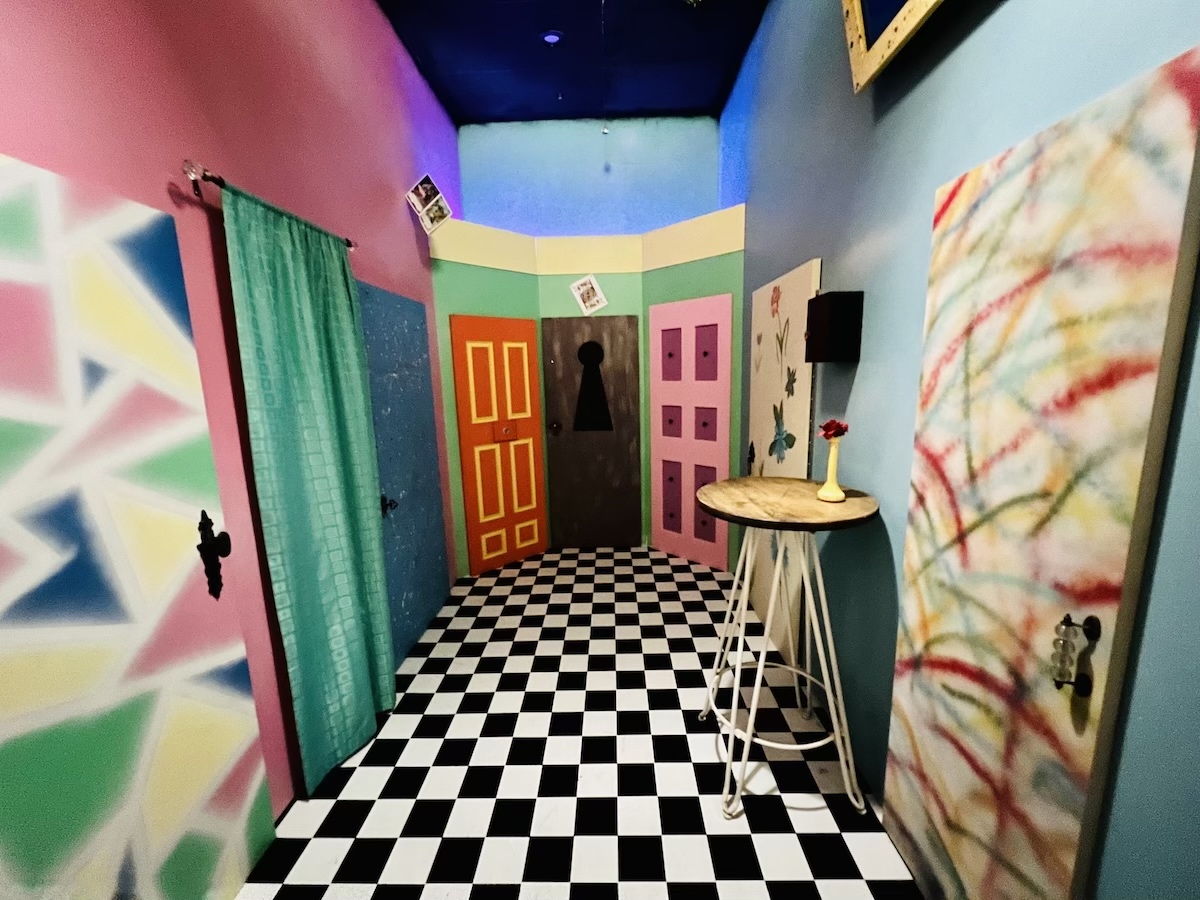Group Strategies: How to Team up Effectively in an Escape Space
Groups must actively listen to each member's understandings, appoint duties that straighten with private toughness, and keep routine check-ins to make certain focus and avoid redundancy. By promoting an atmosphere that values communication and adaptability, teams can considerably increase their efficiency and success prices.
Establish Clear Interaction
To help with clear communication, it is important to mark a main point of get in touch with for details dissemination. This duty entails summarizing searchings for and suggested techniques to ensure every person remains on the same web page. Furthermore, adopting an organized technique to discussions can prevent disorderly exchanges. Short, concentrated updates from each group participant can keep the team notified without frustrating them with information - best escape room.

Designate Roles Tactically
While clear communication establishes the foundation for efficient synergy, appointing duties strategically makes certain that each employee's strengths are utilized successfully. In an escape room situation, the time-sensitive and intricate nature of challenges requires an efficient method to job delegation. By identifying and leveraging private proficiencies, groups can enhance their analytic capacities and improve total efficiency.
First, assess the special skills and features of each individual. Somebody with a keen eye for information may succeed in discovering surprise objects, while a rational thinker can be better fit to resolving challenges. It's equally vital to have a leader who can look after progress, manage the timeline, and make definitive phone calls when essential. This role often needs strong business and social skills.
2nd, guarantee that duties are versatile and adaptable. As new challenges emerge, the team needs to be able to pivot, reapportioning tasks as called for. This adaptability aids keep momentum and prevents bottlenecks that could take place due to rigid duty assignments.
Eventually, a calculated strategy to duty task not just takes full advantage of the toughness of each team member but also cultivates a cohesive setting, driving the group towards a successful retreat.
Make Use Of Diverse Skills
Acknowledging and utilizing the diverse abilities within your group can significantly elevate your performance in a getaway space. Each staff member brings one-of-a-kind toughness to the table, and effectively leveraging these capabilities can expedite analytic and boost overall performance. A team participant with strong analytical abilities could succeed at understanding complicated codes or patterns, while an additional with eager observational capabilities may promptly detect surprise ideas that others may neglect.
Reliable communication is essential to making use of these diverse abilities. Encourage employee to articulate their insights and concepts quickly, ensuring that all possible services are taken into consideration. This comprehensive method cultivates a dynamic environment where creativity and essential reasoning can thrive. In addition, anonymous designating tasks that align with each participant's strengths can stop bottlenecks and make sure that progress is continual.
Moreover, diversity in skills typically translates to variety in thinking styles, which is important in an escape area setting. While some difficulties might call for logical reasoning and accuracy, others might gain from imaginative and lateral reasoning. By recognizing and leveraging this diversity, groups can resolve a more comprehensive array of difficulties more successfully, thereby enhancing their possibilities of a successful escape.
Manage Time Effectively

Recognize visible puzzles and divide tasks based on group members' staminas, making sure that nobody is still. This practice can aid maintain the group concentrated and protect against time from sliding away unnoticed.
In addition, stay clear look at this site of passage vision. If a challenge is taking too long, turn employee or proceed to one more challenge, returning later with fresh point of views. Interaction is paramount-- keep everyone updated on resolved problems and remaining tasks to prevent redundant efforts.
Last but not least, make use of any tips or clues sparingly but strategically - best escape room. Recognizing when to request help can conserve useful time. By adhering to these time management concepts, teams can substantially boost their opportunities of a successful and enjoyable getaway space experience
Debrief and Reflect
Representation is an important facet of group growth and improvement in the context of escape areas. As soon as the obstacle is completed, whether successfully or otherwise, it is essential for the group to take part in an organized debriefing session. This process allows staff member to evaluate their efficiency, determine toughness, and identify locations for enhancement.
Start the debrief by reviewing what went well. Highlight particular circumstances of effective communication, problem-solving, and cooperation. Recognizing these positive habits enhances them and motivates their repeating in future challenges.
Next, address the barriers encountered. Go over minutes of confusion, miscommunication, or inefficient methods. Encourage an open and useful discussion where team members can share their point of views without worry of criticism. This cultivates a culture of constant renovation and discovering.
Final Thought
In final thought, successful collaboration in an escape space is based upon clear his response communication, strategic role projects, the effective application of varied abilities, and efficient time monitoring. By developing a natural and adaptive team atmosphere, the likelihood of successfully addressing problems and attaining the objective of running away the room is significantly boosted.